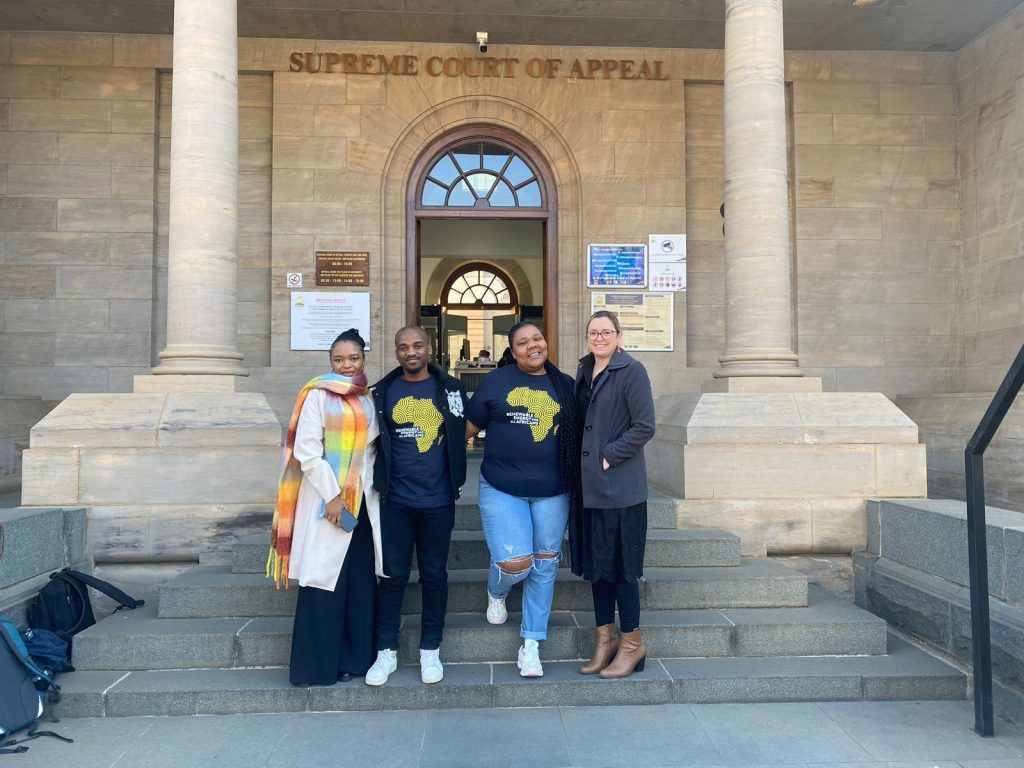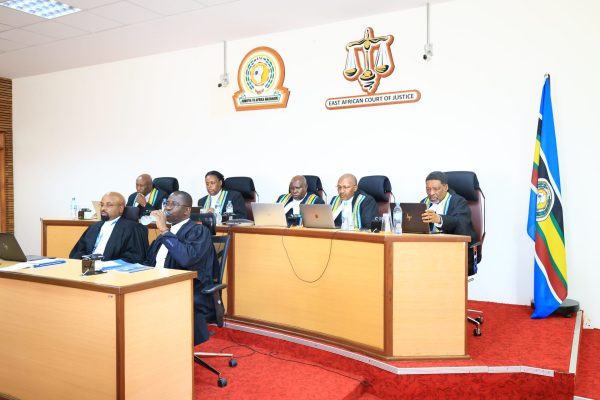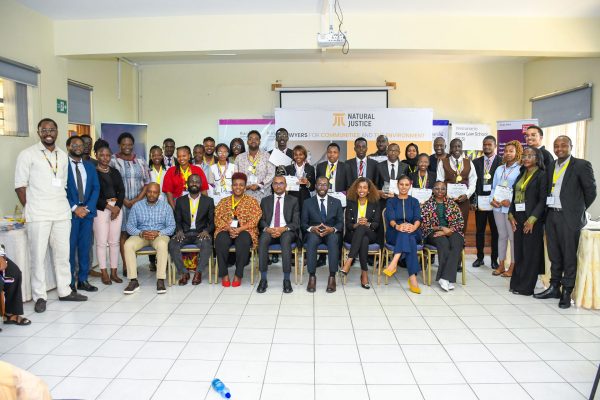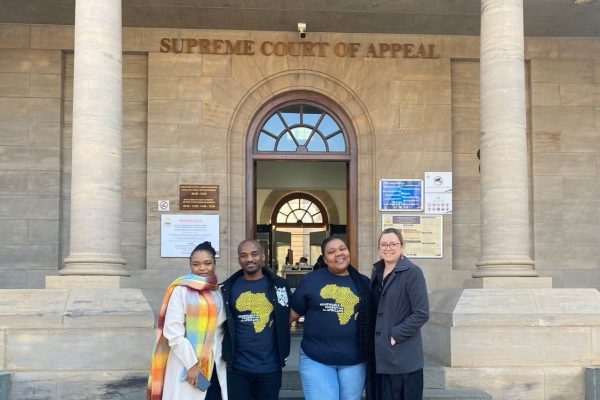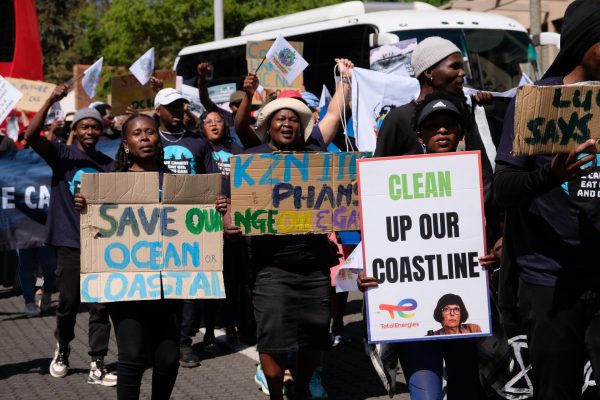Cape Town, 30 August 2024: Civil society organisations are optimistic about the outcomes of a Supreme Court of Appeal hearing, following arguments that took place today in Bloemfontein. The court has reserved judgment.
South Durban Community Environmental Alliance (SDCEA) and groundWork challenged a High Court judgment on Eskom’s proposed gas power plant in Richards Bay.
The organisations have been fighting to prevent a proposed 3,000MW gas-to-power plant from being built in Richards Bay, by state-owned enterprise, Eskom. The gas-to-power plant would be fuelled by gas via a pipeline that would be installed from the Richards Bay Port and would supply up to 3,000MW of energy.
The pipeline is not yet built, nor authorised. However, the gas-to-power plant received environmental authorisation in December of 2019.
The matter went to the SCA as an appeal against the Pretoria High Court judgment that had previously declined to set aside the environmental authorisation granted to Eskom for the gas power plant. This despite the court finding that the public participation process was flawed.
In the High Court, SDCEA and groundWork called for the environmental authorisation to be declared unlawful and set aside, based on inadequacies within the Environmental Impact Assessment (EIA) and a flawed public participation process, given that many communities were excluded from the process.
Paul-Micheal Keichel, from environmental law firm Cullinan & Associates, representing the SDCEA and groundWork, supported by Natural Justice, said that it was a very high impact case, the result of which would have repercussions for all of those who care about the environment.
“The questions which we were boxing about today revolve around what the requirements are in order to obtain an environmental authorisation in South Africa under the National Environmental Management Act (NEMA) and, for that matter, very importantly, whether policy decisions that have been taken by the state in advance of an application for environmental authorisation can get the state out of strictly adhering to the requirements in terms of NEMA.”
He added: “We are cautiously optimistic that any confusion that in future might be relied upon by the state will have been cleared up today.”
Legal representatives argued that, while the executive is indeed mandated to formulate an action policy, it remains constrained by the rule of law. This requires that, in the case of NEMA, their plans still need to navigate strict environmental checks and balances, and that such process should be informed by reference to all relevant considerations. Policy cannot override NEMA requirements. The impact of the plant on climate change, throughout its lifecycle, was argued to be a primary and thus unavoidable consideration in this case.
SDCEA representative, Nokwazi Magubane said she thought the day went well.
“I’m feeling optimistic about the way that all of the judges handled both the appellants and the respondents. So, I am optimistic about the outcome.”
Also attending the hearing in Bloemfontein, Celokuhle Zondi, a Community Environmental Legal Officer (CELO) representing Natural Justice, said: “My takeaway is, keep on fighting, stick to your guns and trust democracy to work.”
Background:
Eskom Holdings SOC, a state-owned enterprise, was granted environmental authorisation in December of 2019.
SDCEA and groundWork called for the environmental authorisation to be declared unlawful and set aside, based on inadequacies within the Environmental Impact Assessment (EIA) and a flawed public participation process, given that many communities were excluded from the process. This was because (among other reasons) none of the communications during the public participation process had been conducted in the home language of the majority of people in the area (isiZulu).
On 2 August 2022, the case was heard in the Pretoria High Court. In the High Court, they argued that there was an inadequate assessment of the climate change impacts of the project. Evidence shows that, holistically and if ‘upstream’ (or pre-combustion) emissions are considered, a gas-to-power plant, such as the proposed plant, emits as much greenhouse gas as other fossil fuels, like coal, during the entire life-cycle of a project.
On 6 October 2022, the Pretoria High Court (despite finding the Applicants’ 5th review ground to have merit – impliedly justifying a review of the impugned decisions) dismissed the review application and refused to set the impugned decisions aside. But, it did grant ancillary orders to the effect that the decision to grant the environmental authorisation should be published in isiZulu and the communications in future EIAs for the gas terminal and pipeline should also be in isiZulu. This unfortunately meant that the environmental authorisation remained valid.
On dismissal, the court awarded costs to SDCEA and groundWork, even though they had been unsuccessful, because they had “brought to the fore the deficit in the public participation process – an essential element central to the legitimacy of the entire application process.
SDCEA and groundWork applied to the Pretoria High Court for leave to appeal. The hearing took place on 17 January. A day later, on 18 January 2023, Judge Millar dismissed the CSOs’ application on the basis that he was of the view that another court would not come to a different conclusion.
The Supreme Court of Appeal granted leave to appeal on 28 April 2023. The appeal was heard in the SCA on 30 August.

